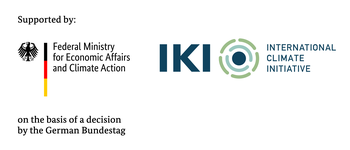COPA primarily supports countries from the Global South eligible for Official Development Assistance in creating effective greenhouse gas mitigation through ozone depleting substances (ODS) and hydrofluorocarbon (HFC) banks management. Partner countries receive access to technical and financial support to establish and further develop a regulatory framework and infrastructure to effectively address the global ODS and HFC banks problem. Countries are welcome to become members of the alliance and benefit from knowledge exchange and an international network of actors willing to jointly work on the sustainable management of ODS and HFCs. In the initial phase, COPA cooperates with China (Ministry of Ecology and Environment of the People’s Republic of China - Foreign Environmental Cooperation Office), Ghana (Ministry of Environment Science Technology and Innovation - Environmental Protection Agency), Mexico (Secretariat of Environment and Natural Resources of Mexico), Tunisia (Ministry of Environment of Tunisia) and Ecuador (Ministry of Production, Foreign Trade, Investment and Fisheries). COPA is working with the five countries to define country-specific commitments, develop project concepts and implement first pilot actions. The results and expertise can then be transferred and multiplied to other countries. COPA focuses on mitigation actions in metropolitan regions as ODS and HFC waste stocks mostly accumulate in densely populated areas.COPA PARTNER & MEMBER COUNTRIES
COPA COUNTRIES
Sierra Leone Prior to ExCOM94, there was no defined effort to address ODS/HFC Banks Management in the country, despite the presence of several potential hot spots, particularly due to the large importation of used refrigeration and air-conditioning systems, second-hand vehicles, and foam mattresses. However, with funding from the Multilateral Fund Secretariat of the Montreal Protocol, Sierra Leone is preparing to conduct its first-ever inventory of ODS/HFC banks. The main challenge is the limited capacity to carry out such an inventory, but with the support of COPA, an online capacity-building training has been proposed and agreed upon before starting the inventory. For more information: www.epa.gov.sl UNDP is willing to support the partners to strengthen their systems for the reduction of ODS and HFCs banks emissions.
Please select a country:
Member
Activities
